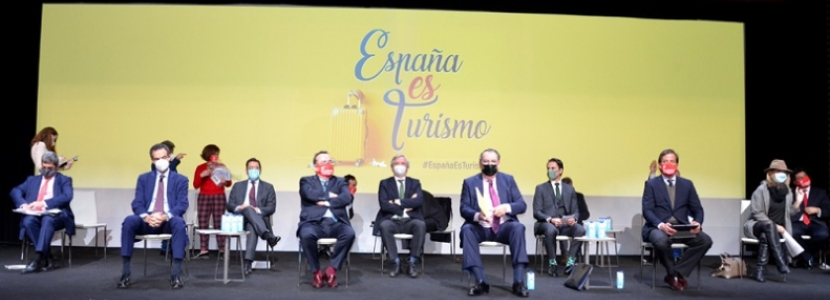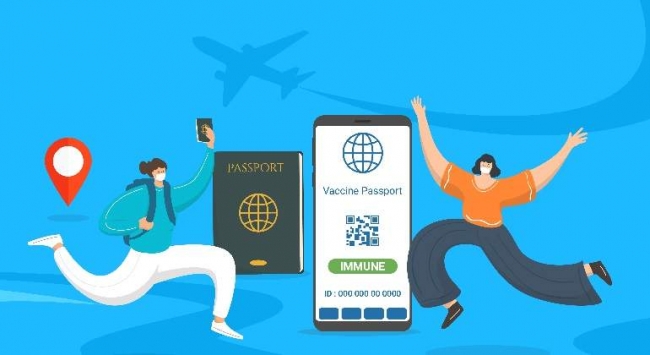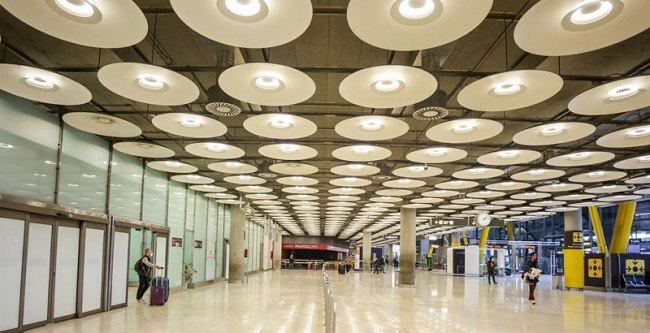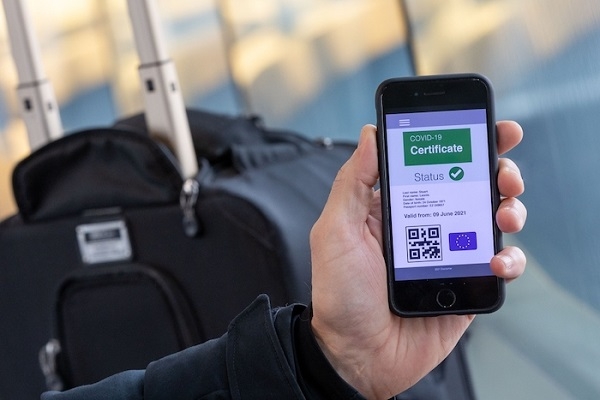
The aim is to reach the summer with 70% of the population vaccinated, which would allow us to have a "moderately good tourist season", according to Molas.
Representatives of travel agencies, hotels, buses, airlines, rent a car, and other tourism subsectors have met this Thursday in Madrid to show strength in front of the Government and demand direct aid and an acceleration of vaccination.
The president of the Mesa del Turismo, Juan Molas, and the vice-president of the Tourism Council of CEOE, José Luis Yzuel, have led the staging accompanied by senior officials from 14 subsectors such as CEAV, ALA, CLIA, Catering Brands, Spain by Night, Confebus, FECC, AECG, ASPE, Fevitur, OPC Spain, Fedele, AFE, Aneval, Feneval, Competur, FIAB and the Association of Incentive Agencies. Hoteliers, however, were not seen among the representatives.
Among the common measures proposed by all the subsectors, "the most urgent" is to speed up vaccination with the aim of reaching 70% of the population vaccinated. To this end, the tourism sector has offered all its resources, and the same is being asked of the government because "there should be no excuses of any kind", says Molas.
If this percentage of vaccinated population is achieved, Molas argues, "it would mean that various population groups such as the elderly would be out of danger and actions such as the Imserso programme could be implemented". This would allow us to have a "moderately good season", bearing in mind that in 2019 tourism contributed 12.4% of direct GDP in Spain and in 2020, this figure has been reduced to 4%.
Thus, he has indicated that to save the summer season, "in the best case scenario", if the rate of vaccination increases and the health situation improves, we could aspire to reach 45 million visitors, "half of the tourism received in 2019", which implies "half of the turnover".
VAT reduction
On the other hand, Molas pointed out the need for tourism workers to form part of the priority sectors for vaccination, which would allow services to be offered safely.
He also stressed the importance of the implementation of a vaccination passport to facilitate international mobility, in digital format, and, on the other hand, he recalled the request to reduce VAT on tourism until the end of 2022, since "it is more 5% of something than 21% of nothing".
As for recovery, the sector does not expect it to come before 2022 or 2023. To this end, they have drawn up a battery of measures for reactivation that would benefit the tourism sub-sectors equally and whose adoption would mean "that public administrations would finally start to act to rescue, and if necessary, rescue the sector most decimated by the pandemic".
Coordination and relaunch of the Spain Brand
The measures proposed jointly by all the subsectors, in addition to speeding up vaccination using all possible resources, the vaccination certificate and the reduction in VAT, also involve improving coordination between administrations and relaunching the Spain Brand, for which they consider that "there is a great deal of work ahead" to reposition Spain as a safe and attractive, as well as sustainable, destination.
The employers' associations ask the Spanish administrations to overcome "confrontations" and focus on providing citizens with solutions to try to avoid limitations to mobility in the national territory. They also consider it necessary to coordinate between the countries of the European Union, applying homogeneous criteria in each of the member states.
They also maintain their request for antigen tests to be accepted as valid for travellers entering Spain, as they are quicker and cheaper than PCRs.
All subsectors demand to be included in the Spanish Government's Recovery and Resilience Plan in order to benefit from European Next Generation funds, as the Government has shown its willingness to "leave no one behind".
Extension of ERTEs and direct aid
The extension of the temporary lay-offs (ERTE) until 2021, another of the measures that the sector has been demanding since the beginning of the pandemic, as well as the elimination of the clause of the commitment to maintain employment and the preservation of aid to the self-employed.
In order to overcome the situation, they are calling for direct aid to compensate for the fall in activity, as well as a 50% reduction in the law on renting premises for a period of 12 months. They also consider it essential to provide aid for financing the sector by making it more flexible, extending grace and repayment periods for loans, as the lack of liquidity threatens to "strangle companies".
In addition, they hope that the State will "sufficiently" finance municipalities through subsidies, so that local councils can "forgive or subsidise local taxes for the different tourist actors, especially hotels and restaurants".
With regard to direct aid, José Luis Yzuel insisted that Spain should look to other European countries where they have really helped businesses linked to the hotel and catering industry and tourism, while "in our country this aid is simply a handout".









